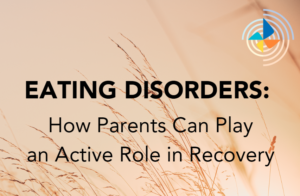Relapse Prevention
It takes a lot of courage, hard work, strength, and support to recover from an eating disorder. Most people experience minor setbacks and slips on their journey through recovery. Relapse is when a person who is in recovery returns to engaging in eating disorder symptoms or becomes strongly influenced by negative thoughts about food, weight and body size again. The best way to prevent a relapse is to learn to recognize and cope with factors that put you at risk or get in the way of recovery. There are several things a person can do to prevent or recover quickly from a relapse.
Signs of Relapse
It is important to remember that recovery is possible, even for those who have struggled with eating disorder symptoms for a long time. If we know some of the signs of relapse, we may recognize when someone is returning to eating disorder patterns. Then, there is a chance to prevent a slip from turning into a relapse.
Examples of warning signs include:
- increased weight checking
- skipping meals or snacks
- urges to restrict foods you previously enjoyed
- over exercising
- needing to be “perfect”
- increased need for control
- difficulty coping with stress
- feeling sad or hopeless
- wearing loose-fitting clothing
- worrying about weight, shape, or body image
- avoiding situations that involve food
- looking in the mirror a lot or avoiding the mirror
- spending a lot of time alone and avoiding friends and/or family
If you notice some of these signs in yourself or a loved one, and are worried that a relapse may happen, it is important to get help right away. The support of a mental health professional can be very important in preventing relapse. This is especially true during the early stages of recovery, which can be both frightening and overwhelming.
Strategies for preventing a relapse:
1. Identify your “triggers”
A “trigger” is anything that can cause you to return to disordered eating behaviours or thoughts. Each person has their own triggers. They often include feeling stressed, anxious, depressed, or lonely. Sometimes an upsetting or traumatic experience can be a trigger. Some people are more likely to relapse at certain times of the year or when there are big changes to routine, for example during holidays or exams. To identify your triggers, think of times when you were tempted to act on eating disorder urges. Try to figure out what contributed to these urges and consider putting a coping plan in place for trigger situations (see below).
2. Make a personal coping plan
Make a list of different triggers that could cause you to act on eating disorder urges. Then, come up with a plan for dealing with each of these triggers in a healthier way. Your coping plan might include calling a friend, taking a walk, or writing in a journal. Your plan may involve re-engaging with strategies that were helpful during treatment, such as returning to a meal plan, getting help preparing meals and snacks, challenging a negative eating disorder thought, or talking to a care provider, for example.
3. Eat snacks and meals regularly
A meal and snack schedule can prevent you from going back to disordered eating or unhelpful eating behaviours. Plan your meals and snacks ahead of time, and stick to your plan! This is especially important when routines change, such as starting a new job, school, or doing on vacation. Eat three meals a day, plus snacks, at regular times (about every 3 hours) and don’t go more than about 4 hours without eating. A consistent schedule will be good for both your emotional and physical health. Your family may be able to help by eating meals together with you as often as possible.
4. Develop a support system – and use it!
It is very important to surround yourself with people who love, support, and encourage you. These people can be members of your family, your friends, or your care providers. They will be there to help you when you are struggling with a difficult situation or experience. It’s not always easy to reach out, but you should feel comfortable asking for help when you need it. Some people find it useful to make a list of names and phone numbers to call if they start to slip back into old thought patterns or unhealthy eating behaviours. Particularly at the early stages of recovery, we often recommend scheduling regular check-ins with someone you trust, to reflect on your progress and keep on top of signs and symptoms of relapse.
5. Reduce negative influences
Try to identify the negative influences in your life, and find ways to reduce or avoid these unhelpful situations. These negative influences might include people who make unhelpful comments about their own weight and appearance, or trigger you to make unhelpful comparisons about your weight or shape. These might be certain aspects of social media or certain activities and hobbies. Sometimes it can be difficult to decide – consider making a pros and cons list of engaging with some of these people or activities. Your own thoughts can also be unhelpful! Learn to challenge any destructive thoughts you have about yourself and try to think in a more balanced and realistic way. Make a list of all of your good qualities and use it when you feel critical or negative.
6. Try out and develop new interests
Get involved in a hobby or activity that you enjoy. Many people find that it is helpful to get involved in hobbies and activities that don’t focus on food/weight/shape. It can be anything from arts & crafts, to volunteering, to nature walks, to joining a club. If you make time to do the things you enjoy, or to do nice things for others, your focus will shift away from your eating disorder. It can also help to keep you motivated to recover and to stay connected to your surroundings and the people in your community.
7. Make time for yourself
It is important to take time to do something good for yourself every day. Some people find it helpful to use this time to relax or reflect. Some do yoga or meditation. Others draw, paint, write, or listen to music. No matter what you choose, remind yourself that you are important. You deserve to take this time to do something that is just for you!
Resource List
- Parents Survive to Thrive Guide: A Resource Guide for Parents of a Child with an Eating Disorder, written by parents with lived experience. ( English )



